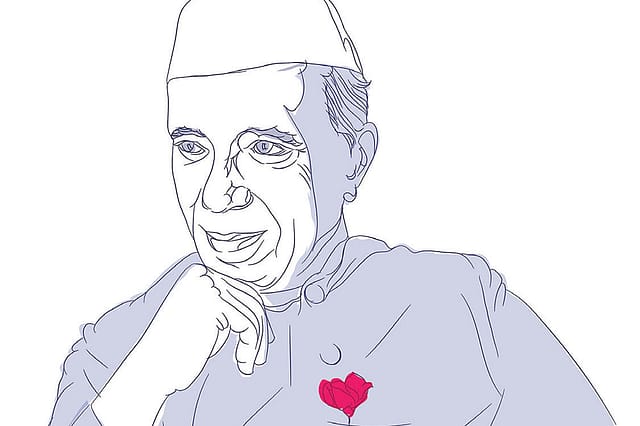The Secular Pretence

THE DEFINITION OF secularism is straightforward: being religion-neutral.
Political leaders like Rahul Gandhi, Akhilesh Yadav, Mamata Banerjee and Asaduddin Owaisi know what being religion-neutral means. And yet, perniciously, they mislead Muslims to snare their votes. But don't BJP leaders do the same by using the Ram Mandir in Ayodhya and the Maha Kumbh in Prayagraj to snare Hindu votes? Of course, they do.
To tease out the difference, go back to first principles. Historically, India was religion-agnostic. It welcomed Christians, Jews, Parsis and Muslims fleeing persecution in Eurasia. All lived in amity with local Hindus, Buddhists and Jains belonging to religions as old or older than those the outsiders practised. And they were allowed to practise their faiths in peace and security without interference. The Hindu majority made no effort to convert them.
That was true secularism. But soon enough, those fleeing persecution in their homelands were followed by invaders. First came Islam's armies from Arabia, then Christian colonists from Europe. The invading Muslims sought land and treasure. The Christians sought trade, territory and taxes. Mughals converted Hindus by force or money. The British focused on commerce, not conversion.
India's natural secularism that had given safe haven to minorities fleeing persecution gave way to violent communalism. The Mughals demolished
temples and imposed jizya (tax) on non-Muslims. The Portuguese, intheirviolentdomaininGoa, persecuted Hindus, forcing many to convert to Catholicism. The Protestant British focused on pillage.
AIming High
20 Feb 2026 - Vol 04 | Issue 59
India joins the Artificial Intelligence revolution with gusto
At Independence in 1947, most Indians hoped, at long last, for a return to the country's earliest tradition of religion-agnostic secularism where
all religions were equal before the law, no one was persecuted because of their faith, and no faith received special privileges. They were disappointed.
India's new democratic leaders, plagued by the trauma of Partition, were politically unprepared for secularism where all religions receive the same treatment and follow the same civil laws.
India's first Prime Minister Jawaharlal Nehru had a modern mind. He knew that civil laws must be uniform across faiths as they were in developed
countries. So within a decade of Independence, Nehru codified Hindu personal law.
Why didn't he codify Muslim or Christian personal law? Because Nehru's modernity was based on a sense of noblesse oblige. To him, minorities needed protection, not secularism. He knew Hindus were instinctively secular, but Muslims, still mourning the passing of their empire, were
not. Nehru refused to codify Muslim personal law, comforting himself that he was being noble and sympathetic to a suddenly disempowered minority.
Of course, Nehru was being neither. By allowing a cleavage to develop between Muslim personal law and Hindu personal law, Nehru was
watering the seeds of communalism that the Mughals and British had planted in India. They would germinate slowly. Hindus had been subjugated for centuries under Muslim and European rule that discriminated against them, the majority. Now, at Independence, they were ruled by Congress that
continued to discriminate against them by giving minorities special privileges under the law.
The first principle of religion-neutrality, of religion-agnosticism, had been breached ironically in the name of secularism. This wasn't true secularism where all faiths are treated equally and none have special privileges. This
was communalism dressed up as secularism.
It was this betrayal of honest secular governance that led to the rise of BJP and the fall of Congress. In December 1984, Congress under Prime Minister
Rajiv Gandhi won over 400 seats in the Lok Sabha election. BJP won two seats. Thirty years later, in 2014, BJP won 282 seats, Congress 44.
In between there was the Shah Bano case, the Babri Masjid demolition, riots and terrorism. The cleavage between Hindus and Muslims widened. That cleavage has allowed Hindus over the past decade to revel in their majoritarianism just as Muslims revelled for centuries in their minoritism.
The ratification of the Uniform Civil Code (UCC) in Uttarakhand, and possibly soon in Gujarat, and the new Waqf Act are a consequence of the fraudulent secularism practised in post-independent India.
European colonisers and Mughal invaders had a malignant justification for being communal: they were predators, in India to pillage and profit,
dividing faiths to achieve their ends.
But what can justify the conduct of post independent political parties? They preach secularism but practise dressed-up communalism exemplified by a former Congress prime minister who pledged to minorities not equal
rights but the first right to India's resources.
